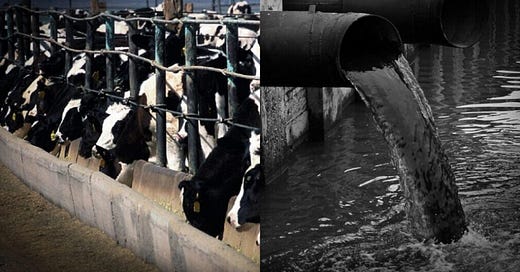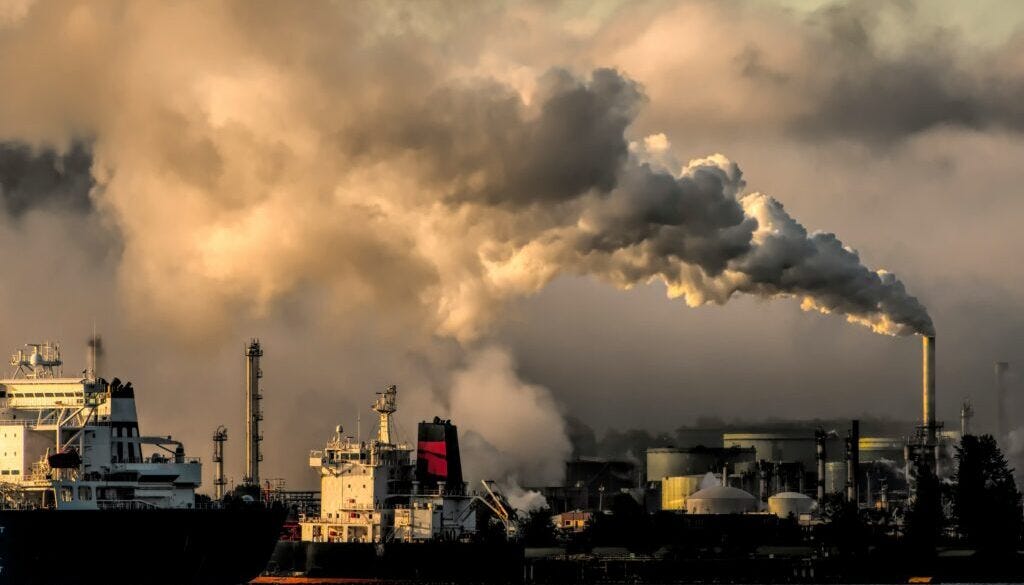Must-read recap: The New Lede's top stories
Michigan notches victory in effort to rein in farm waste; legal battle over fossil fuels and climate heats up.
Michigan notches a victory in effort to rein in polluting farm waste
In a rare rebuke to the industrial farm sector, the Michigan Supreme Court last week ruled that state environmental regulators have full authority to require livestock and poultry operations to improve their handling of billions of pounds of manure that contributes to contamination of waterways.
The 5-2 decision issued August 7 is one of the most significant environmental protection measures in Michigan in years. It comes after four years of battles between state officials and operators of poultry and hog feeding operations and large dairies over regulatory efforts to reduce agriculture-related water pollution. Farm-related nitrates and phosphorus have fouled Lake Erie and other state waters for decades.
The court’s decision recognizes that the Michigan Department of Environment, Great Lakes, and Energy (EGLE) not only has the power but also has the obligation under state and federal law to issue permits aimed at cleaning up Michigan’s water keeping it free of dangerous pollutants, said Rob Michaels, managing attorney of the Chicago-based Environmental Law & Policy Center, one of eight environmental organizations that filed a brief in support of the state.
The ruling is a rare defeat for industrial agriculture interests, particularly the Michigan Farm Bureau, which is supported by the major state associations for milk, pork, and poultry producers. The bureau did not respond to requests for comment. (Read the rest of the story.)
Legal battle over fossil fuels and climate heats up
As climate change fuels increasingly damaging extreme weather events across the United States, litigation is growing against fossil fuel companies accused of being to blame for the devastation. But a series of recent legal moves by the industry and mixed judicial decisions underscore the challenges that local and state government plaintiffs face in the multi-billion-dollar battle.
Just last month, the industry scored a significant win when a Maryland circuit court judge tossed out a six-year-old climate liability case against more than two dozen of the world’s largest fossil fuel companies. The case, filed in 2018 by Baltimore officials, accused the companies of hiding the climate-harming impacts of their products, causing rising sea levels, severe storms, flooding, heatwaves and other “dire effects on the world.”
The fossil fuel companies successfully argued, however, that because the legal claims center on global greenhouse gas emissions, they stretch beyond the bounds of state laws. Greenhouse gas emissions from fossil fuels are regulated by the US Environmental Protection Agency (EPA), and federal law – particularly the Clean Air Act – preempts state law claims pertaining to those emissions, according to the industry.
“Regulation of interstate and international greenhouse gas emissions is beyond the role of state law,” Phil Goldberg, special counsel for an industry initiative working to combat climate litigation, said in a statement. (Read the rest of the story.)




